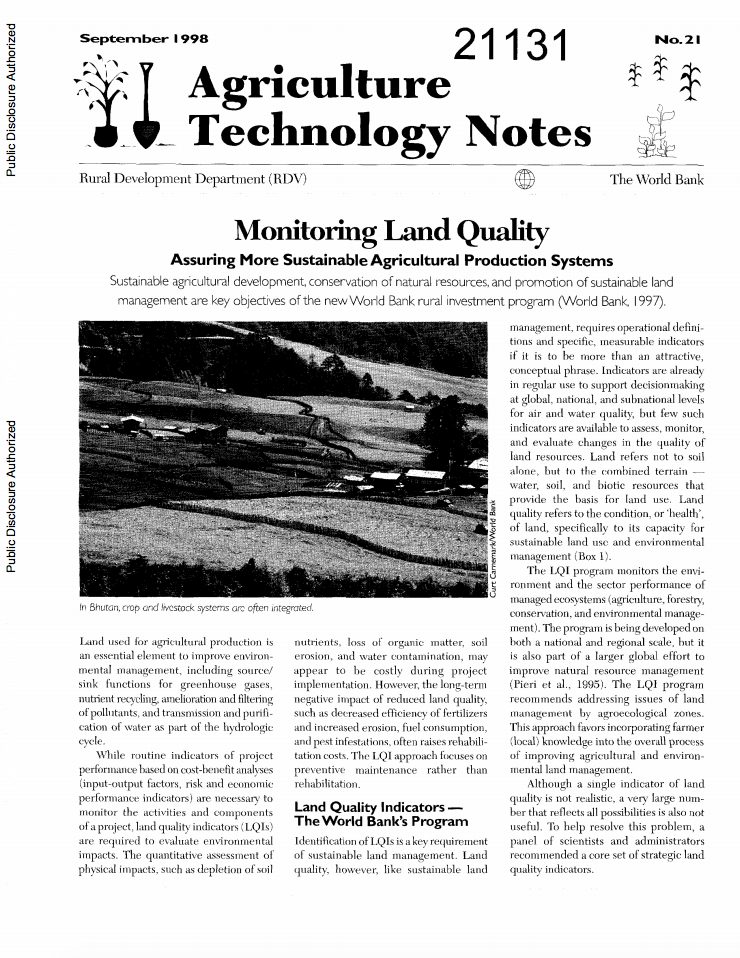What is AGRIS?
AGRIS (International System for Agricultural Science and Technology) is a global public database providing access to bibliographic information on agricultural science and technology. The database is maintained by CIARD, and its content is provided by participating institutions from all around the globe that form the network of AGRIS centers (find out more here). One of the main objectives of AGRIS is to improve the access and exchange of information serving the information-related needs of developed and developing countries on a partnership basis.
AGRIS contains over 8 million bibliographic references on agricultural research and technology & links to related data resources on the Web, like DBPedia, World Bank, Nature, FAO Fisheries and FAO Country profiles.
More specifically
AGRIS is at the same time:
A collaborative network of more than 150 institutions from 65 countries, maintained by FAO of the UN, promoting free access to agricultural information.
A multilingual bibliographic database for agricultural science, fuelled by the AGRIS network, containing records largely enhanced with AGROVOC, FAO’s multilingual thesaurus covering all areas of interest to FAO, including food, nutrition, agriculture, fisheries, forestry, environment etc.
A mash-up Web application that links the AGRIS knowledge to related Web resources using the Linked Open Data methodology to provide as much information as possible about a topic within the agricultural domain.
Opening up & enriching information on agricultural research
AGRIS’ mission is to improve the accessibility of agricultural information available on the Web by:
- Maintaining and enhancing AGRIS, a bibliographic repository for repositories related to agricultural research.
- Promoting the exchange of common standards and methodologies for bibliographic information.
- Enriching the AGRIS knowledge by linking it to other relevant resources on the Web.
AGRIS is also part of the CIARD initiative, in which CGIAR, GFAR and FAO collaborate in order to create a community for efficient knowledge sharing in agricultural research and development.
AGRIS covers the wide range of subjects related to agriculture, including forestry, animal husbandry, aquatic sciences and fisheries, human nutrition, and extension. Its content includes unique grey literature such as unpublished scientific and technical reports, theses, conference papers, government publications, and more. A growing number (around 20%) of bibliographical records have a corresponding full text document on the Web which can easily be retrieved by Google.
Members:
Resources
Displaying 9221 - 9225 of 9579Monitoring land quality : assuring more sustainable agricultural production systems
Identification of Land Quality Indicators (LQIs) is a key requirement of sustainable land management. They are required to assess, monitor, and evaluate changes in the quality of land resources and environmental impacts. The Land Quality Indicator (LQI) program monitors the environment and the sector performance of managed ecosystems. The program is being developed on a national and regional scale, but it is also part of a larger global effort to improve natural resource management. The LQI program recommends addressing issues of land management by agroecological zones.
Trends in vegetation cover and land use by digital processing of satellite images in La Mojana, Colombia
La Mojana region is located in the North Coast of Colombia. It is part of the alluvial extensive plain, where the Cauca, San Jorge and Magdalena rivers flow together. The region is representative of the tropical humid forest, and is affected by annual flooding cycles. The predominant soils are inceptisols, entisols, oxisols and vertisols. Human activity has been reported since pre-Columbiam times, with the Zenu culture.
THE IMPLEMENTATION OF THE GAMBIAN RANGELAND AND WATER DEVELOPMENT PROJECT: LESSONS FOR SOUTHERN AFRICA
This article examines the conception, design, implementation and monitoring of The Gambianrangeland and water development project based in Niamina Dankunku and Niamina Westdistricts of the country. It attempts to make a management evaluation of the project, gaining aninsight into the nature of the development problem and the approach adopted by the project forits solution. It then seeks to examine the lessons that southern African countries could learnfrom this experience in the light of similarities in socio-economic circumstances.
AN ECONOMETRIC ANALYSIS OF FACTORS AFFECTING TROPICAL AND SUBTROPICAL DEFORESTATION
In most developing countries deforestation has reached alarming rates. In view of their relevancefor the local economy (e.g., as a source of foreign exchange earnings and supply of fuelwood), anadequate management of forest resources should be pursued. In these economies forestexploitation and land conversion have often been seen as a temporary solution to structuralproblems. In this way, however, the same problems are even aggravated in the long run.
Peasant Logic, Agrarian Policy, Land Mobility, and Land Markets in Mexico
Mexican rural reform has questioned the role of the peasantry and private national producers in agriculture. The reform followed a neoliberal paradigm for incorporating the nation into the global village. As part of a government strategy, land reform in Mexico aims to change entrepreneurial and land tenure patterns in rural areas into an individual, private, large-scale, and capitalist productive structure, and the land market is vital in allowing the land transfers needed to change the land tenure pattern.




